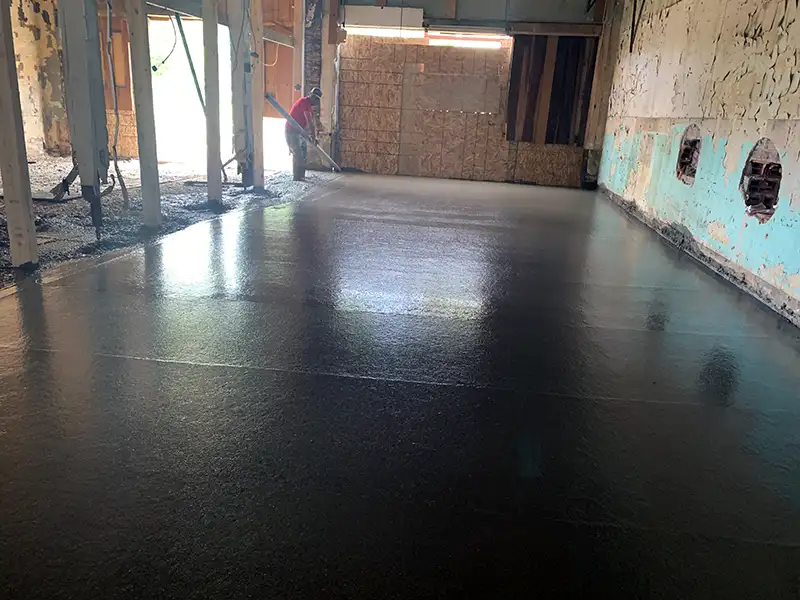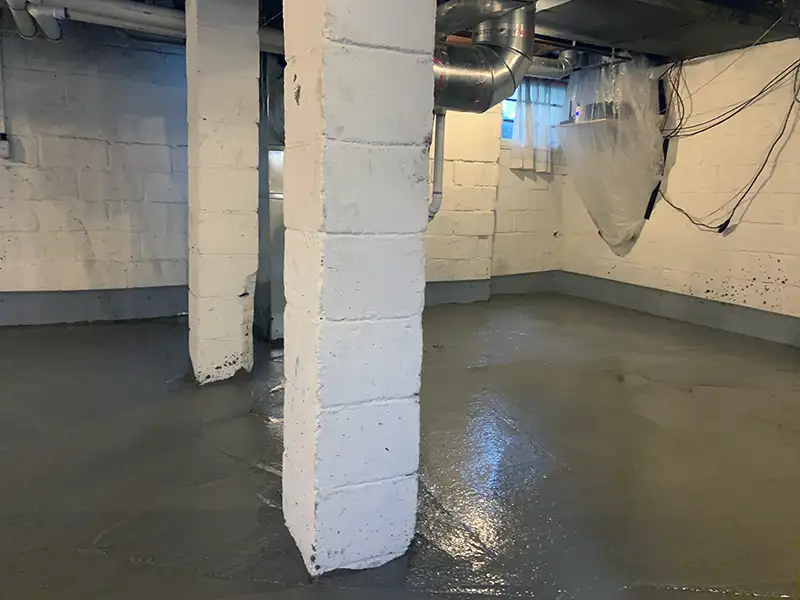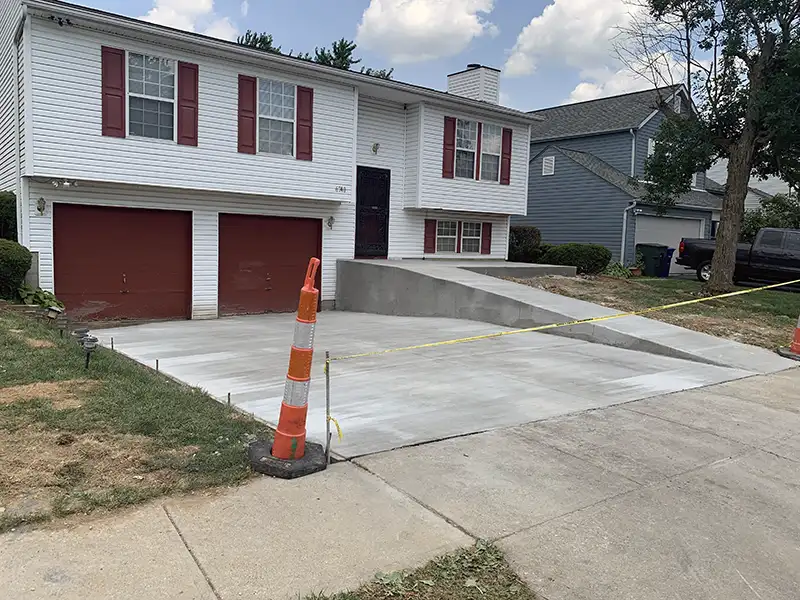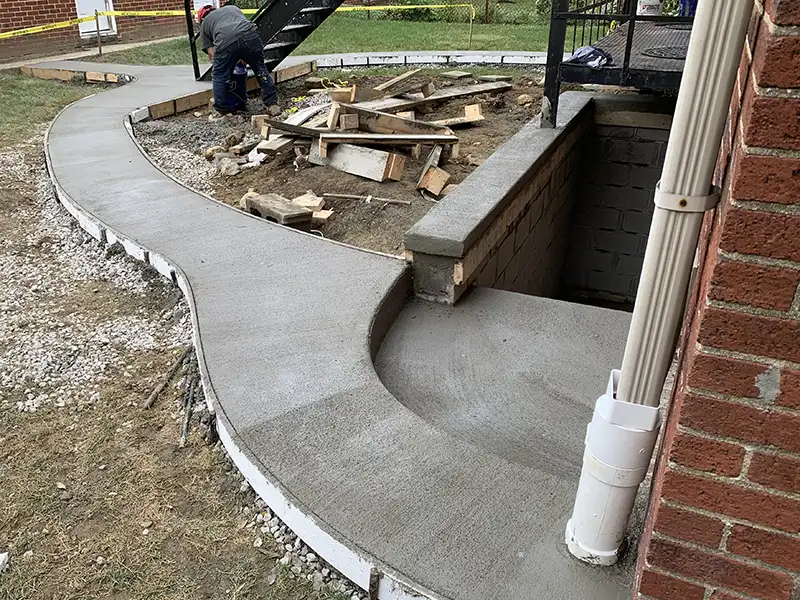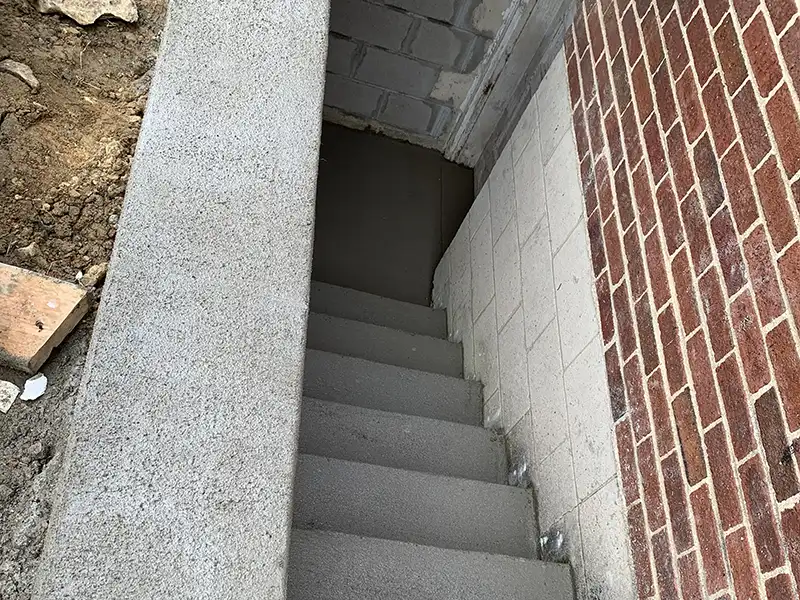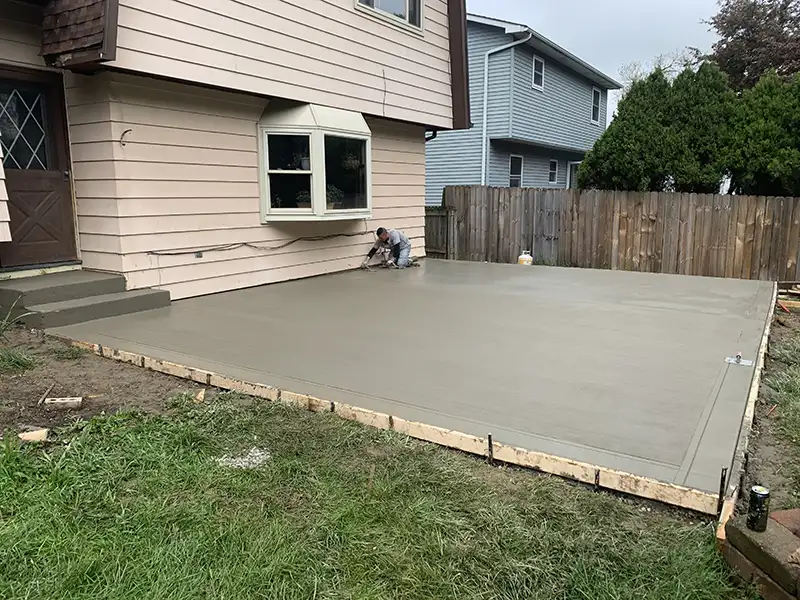Concrete Construction
Concrete construction is pivotal in modern infrastructure, ensuring longevity and versatility across numerous applications. For basement and crawlspace walls, rigid and spray foam insulation prevents heat loss and moisture intrusion, maintaining structural integrity. Sidewalks and driveways often use high compressive strength concrete (approx. 4,000 psi), with residential driveways measuring 8 to 10 feet wide. Patios benefit from decorative finishes and require sealing every 2-3 years to resist weathering. Sidewalks, typically 4 inches thick and reinforced with wire mesh or rebar, provide essential support and durability. Elements like these offer deeper insights into efficient concrete construction techniques and practices.
Basement / Crawlspace walls / Floors
Basement and crawlspace walls and floors play an indispensable role in a building’s structural integrity and functionality. Guaranteeing proper insulation and ventilation in these areas is vital to maintaining a stable and healthy environment. Basement insulation, typically achieved with materials like rigid foam or spray foam, reduces heat loss and minimizes energy costs. It also helps to prevent moisture build-up, which can lead to mold and structural damage.
Crawlspace ventilation is another vital factor. Adequate ventilation prevents the accumulation of moisture and maintains air quality. Installing vents that allow cross-ventilation can greatly reduce moisture levels, thereby protecting the structural integrity of the crawlspace. Moisture barriers, such as polyethylene sheeting, are often used in conjunction with ventilation to provide an additional layer of protection against dampness.
Foundation repair is essential when dealing with structural issues in the basement and crawlspace walls and floors. Over time, foundations can crack or settle, leading to serious structural problems. Addressing these issues promptly with techniques such as underpinning or wall anchors guarantees long-term stability and safety.
Wall waterproofing is another vital measure. Applying waterproof coatings or membranes to basement walls can prevent water intrusion, which is a common cause of structural damage. These measures are especially important in areas with high water tables or frequent rainfall.
Sidewalks / Driveways / Patios
Proper insulation and ventilation in basements and crawlspaces guarantee long-term structural integrity, but attention to exterior concrete elements like sidewalks, driveways, and patios is equally important for a well-rounded construction approach. Selecting the appropriate sidewalk materials is essential to secure durability and safety. Concrete, with its high compressive strength of approximately 4,000 psi, offers a reliable choice for sidewalk installation, minimizing the risk of cracking under heavy foot traffic.
Driveway designs should balance functionality and aesthetics. A standard residential driveway should measure 8 to 10 feet in width to accommodate vehicles comfortably. Integrating decorative finishes, such as stamped or stained concrete, enhances driveway aesthetics without compromising structural integrity. The installation process mandates precise grading and compaction of the sub-base to prevent future settlement issues.
Patio maintenance is critical for prolonging the life of outdoor living spaces. Regular sealing every 2-3 years protects the concrete from weathering and staining. Incorporating control joints every 4-6 feet during initial construction mitigates the risk of unsightly cracks. Additionally, verifying proper drainage around the patio area prevents water pooling, which can undermine the concrete’s foundation.
Sidewalk installation requires careful consideration of local climate conditions. Installing a minimum thickness of 4 inches for sidewalks guarantees adequate strength while reinforcing with wire mesh or rebar provides additional support. Driveway aesthetics can be further enhanced by incorporating exposed aggregate or colored concrete, offering a visually appealing yet practical solution.


